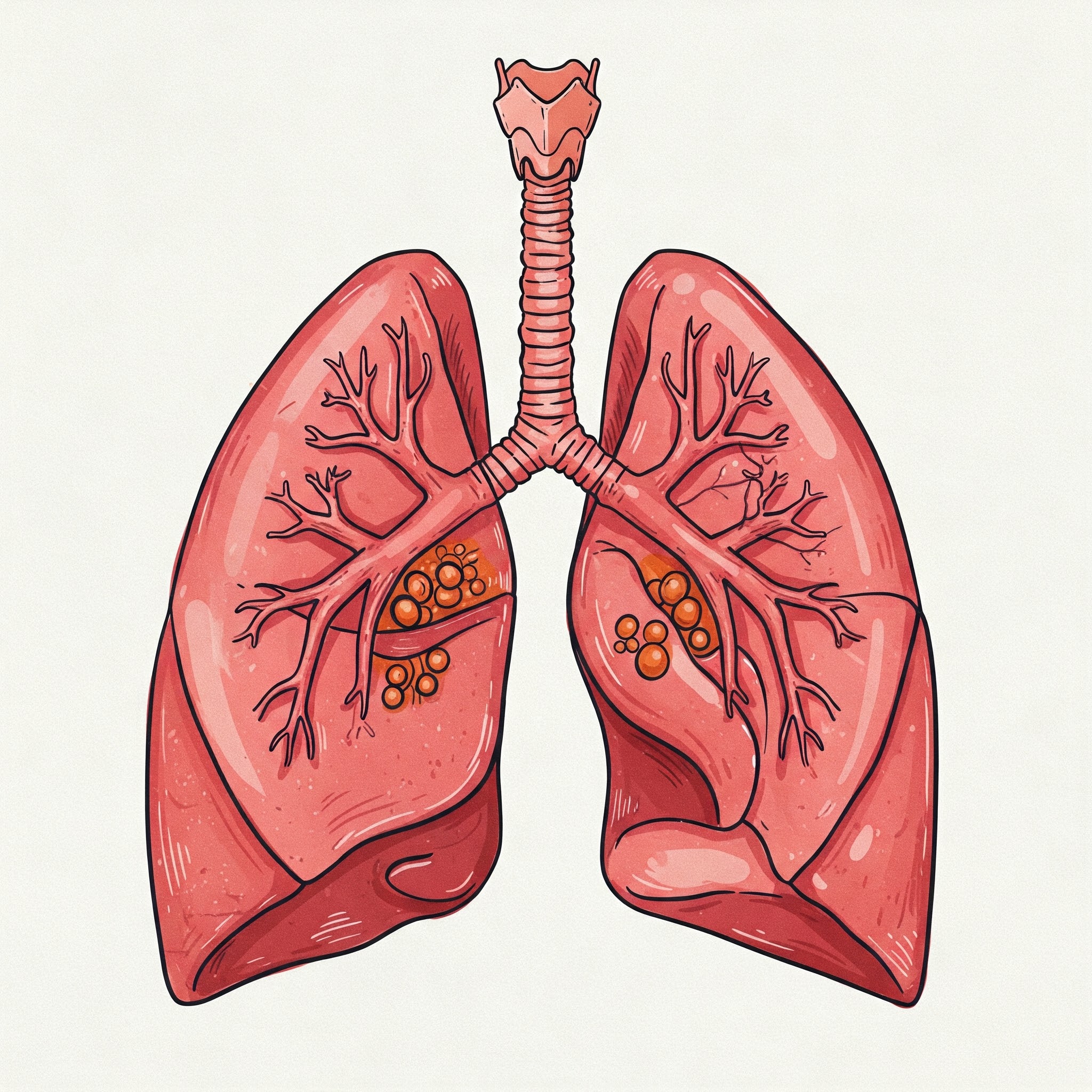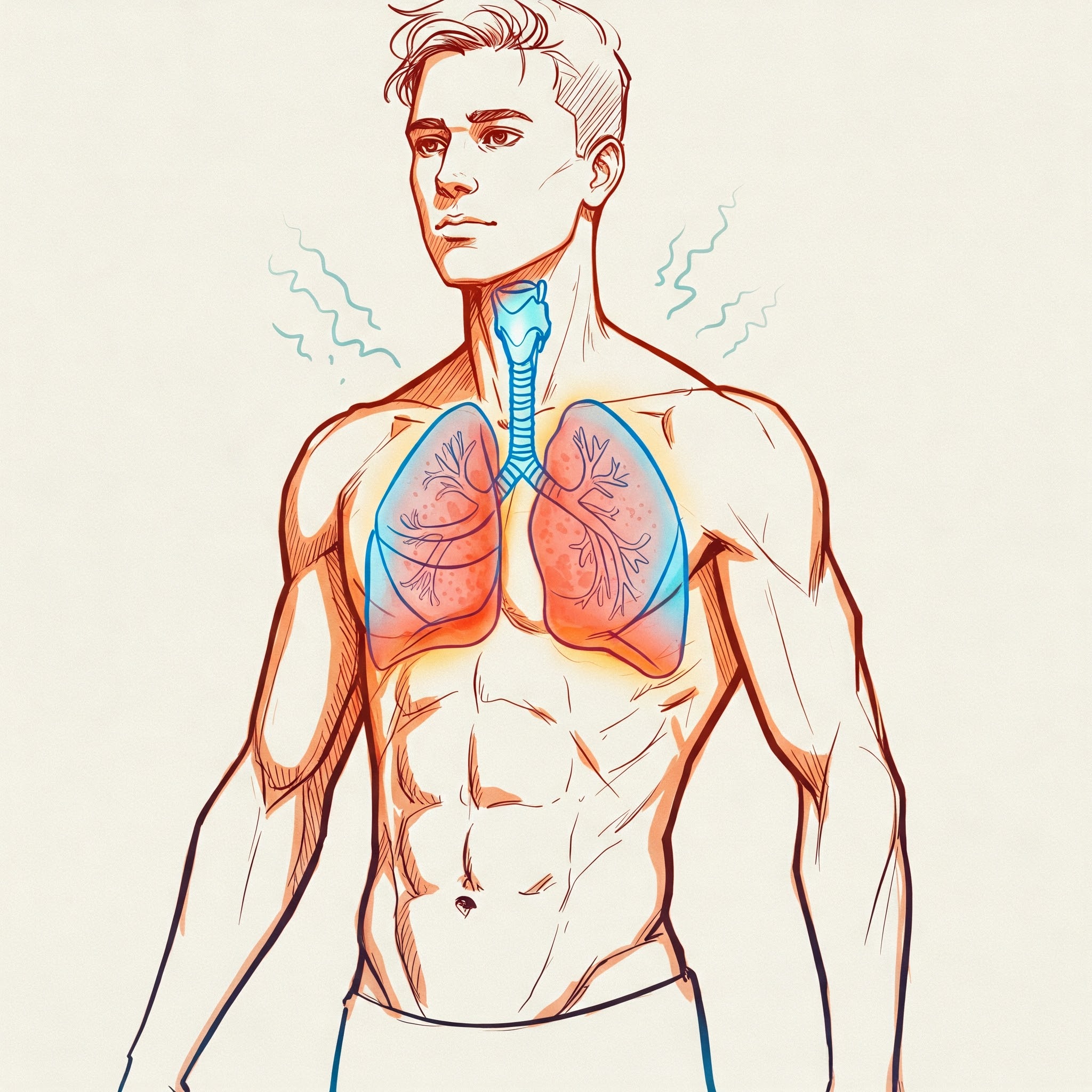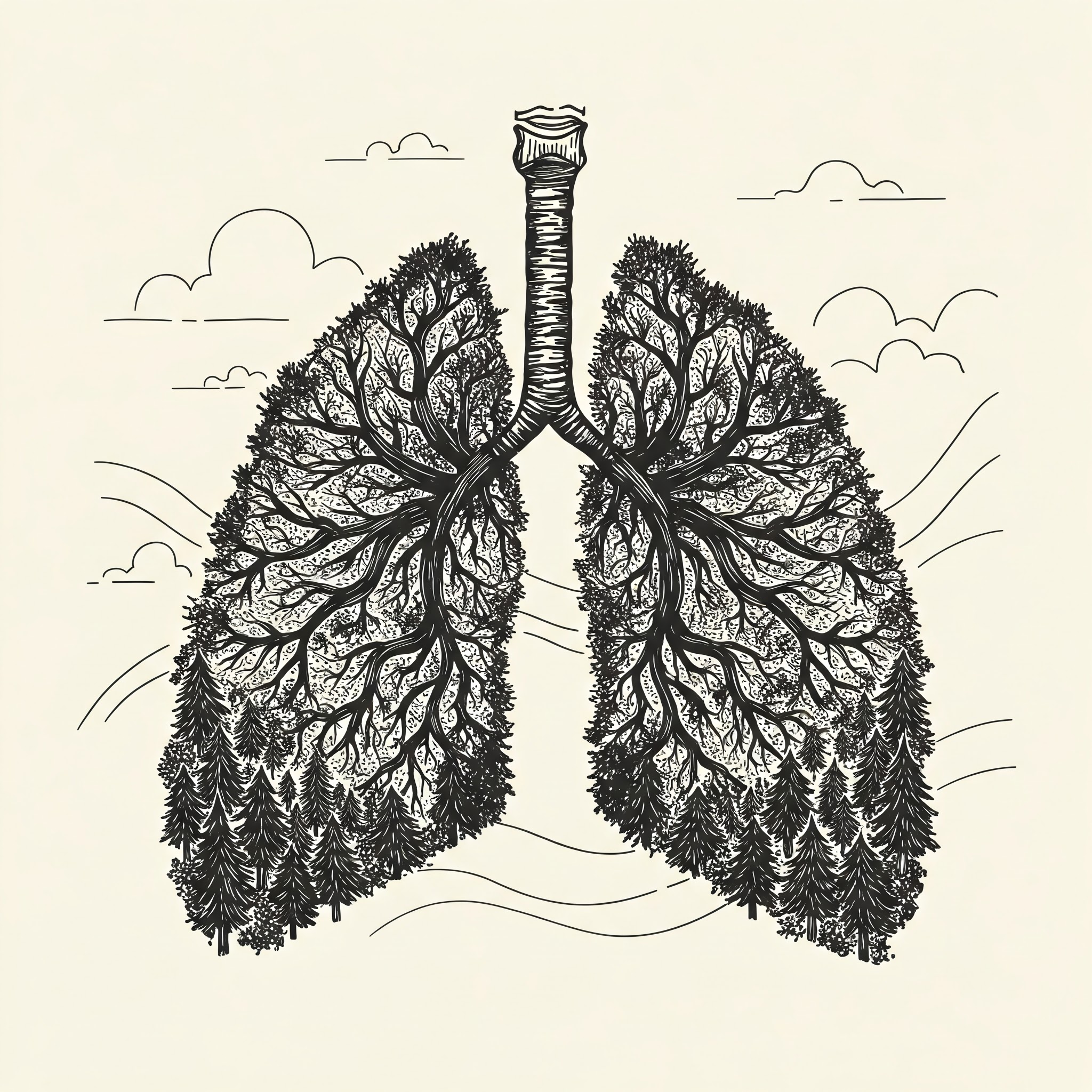Lung
Definition
Lung is a noun that refers to one of the two sac-like respiratory organs in the chest of humans and other vertebrates, which are responsible for gas exchange, specifically the intake of oxygen and the release of carbon dioxide.
Parts of Speech
- Noun
Pronunciation
American English
- IPA Pronunciation: /lʌŋ/
- Respelling: LUNG
British English
- IPA Pronunciation: /lʌŋ/
- Respelling: LUNG
Etymology
The word "lung" originates from Old English "lungen," derived from Proto-Germanic "*lungwō," meaning "light" (in weight), due to the organ's spongy texture. It shares roots with the German "Lunge" and Dutch "long," maintaining its meaning through history.
Derivatives
- Pulmonary (adjective, related to the lungs)
- Lungful (noun)
- Lunged (adjective, often in compound terms like "single-lunged")
- Lungless (adjective)
- Ventilate (verb, related to airflow in lungs)
Synonyms
- Respiratory organ
- Air sac
- Breathing apparatus
Antonyms
- None
Usage
The word "lung" is used primarily in medical, biological, and anatomical contexts. For example, "Smoking can damage your lungs" highlights health concerns, while "The athlete has strong lungs" refers to respiratory capacity. It is also metaphorically used to describe places that provide "breathing space," e.g., "Parks are the lungs of the city."
Related Terms
- Breathing: The process of inhaling and exhaling air.
- Oxygen: A gas absorbed by the lungs during respiration.
- Carbon dioxide: A gas expelled by the lungs as a waste product of respiration.
Detailed Definitions
Noun
- One of the two primary respiratory organs in the chest: Refers to the organs involved in the process of breathing and gas exchange.
- Example: "The lungs are essential for oxygenating blood."
- A metaphorical source of vitality or renewal: Refers to an area or space providing refreshment or renewal, often figuratively.
- Example: "The forest is considered the lung of the planet."
lung



🇨🇳 Mandarin (Simplified Chinese)
- 肺 (fèi)
- IPA Pronunciation: /feɪ̯˥˩/
- English Respelling: Fey (falling tone)
🇮🇳 Hindi
- फेफड़ा (Phephṛā)
- IPA Pronunciation: /pʰeːpʰɽaː/
- English Respelling: Fey-Phrhaa
🇪🇸 Spanish
- Pulmón
- IPA Pronunciation: /pul'mon/
- English Respelling: Pool-mohn
🇫🇷 French
- Poumon
- IPA Pronunciation: /pu.mɔ̃/
- English Respelling: Poo-mon (nasal)
🇦🇪 Modern Standard Arabic
- رئة (ri'a)
- IPA Pronunciation: /riːʔa/
- English Respelling: Ree-a
🇧🇩 Bengali
- ফুসফুস (Phusphus)
- IPA Pronunciation: /pʰʊs pʰʊs/
- English Respelling: Phus-Phus
🇷🇺 Russian
- Лёгкое (Lyogkoye)
- IPA Pronunciation: /ˈlʲɵɡkəjɪ/
- English Respelling: Lyoh-gkoye
🇵🇹 Portuguese
- Pulmão
- IPA Pronunciation: /puɫ'mɐ̃w̃/
- English Respelling: Pool-mown (nasal)
🇮🇩 Indonesian
- Paru-paru
- IPA Pronunciation: /pa.ru.pa.ru/
- English Respelling: Pa-roo-pa-roo
🇩🇪 German
- Lunge
- IPA Pronunciation: /ˈlʊŋə/
- English Respelling: Loong-uh
🇯🇵 Japanese
- 肺 (Hai)
- IPA Pronunciation: /ha.i/
- English Respelling: Hah-ee
🇻🇳 Vietnamese
- Phổi
- IPA Pronunciation: /fəːj˧ˀ˦/
- English Respelling: Fuh-y (rising tone)
🇰🇷 Korean
- 폐 (Pye)
- IPA Pronunciation: /pʰje/
- English Respelling: Phyeh
🇹🇷 Turkish
- Akciğer
- IPA Pronunciation: /akdʒiːˈɛɾ/
- English Respelling: Ahk-je-ehr
🇵🇰 Urdu
- پھیپھڑا (Phephṛā)
- IPA Pronunciation: /pʰeːpʰɽaː/
- English Respelling: Fey-Phrhaa





